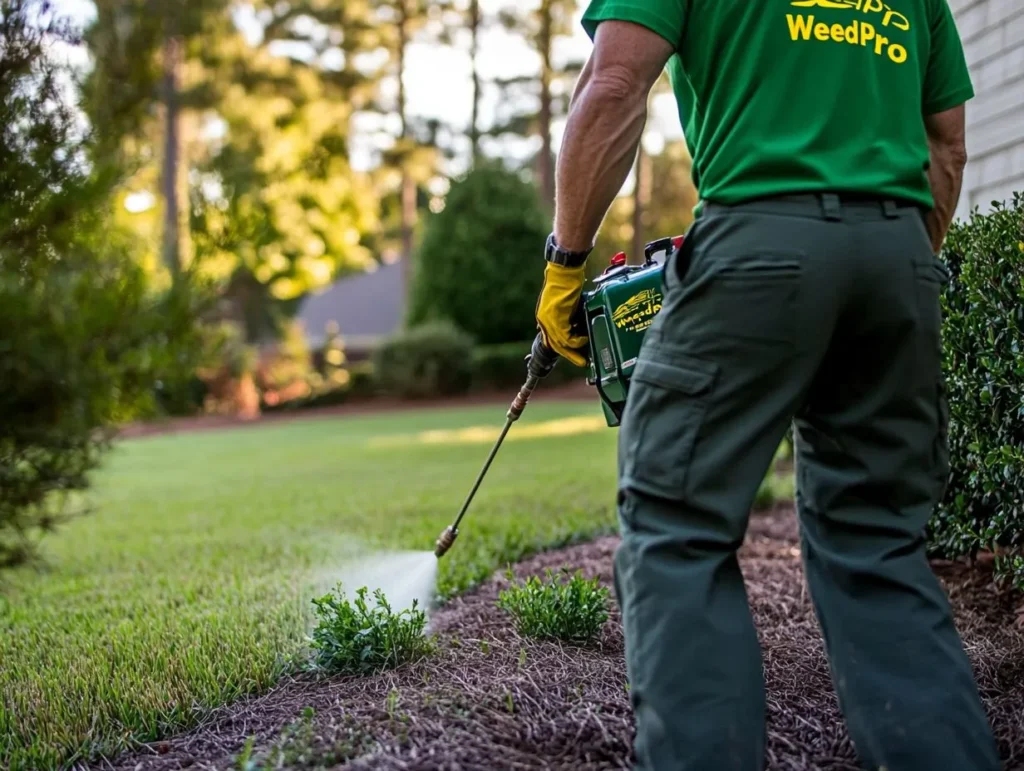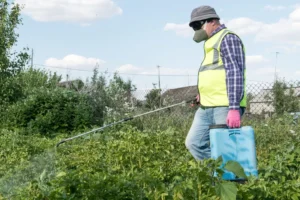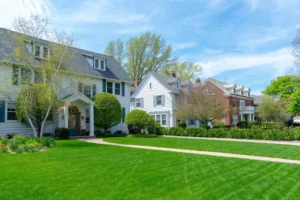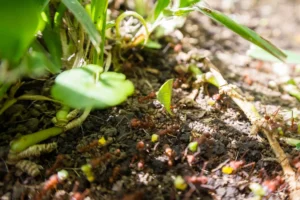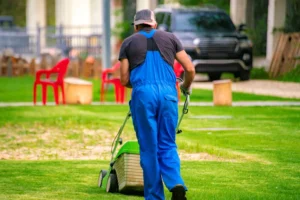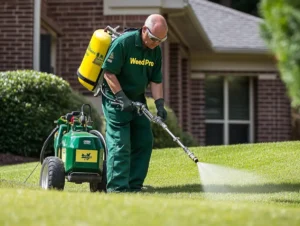Every Spring, those obnoxious weeds try to crash the party that Georgia’s lawn is throwing to show off, while also costing you your beautiful lawn. The right action, whether it is preventing or controlling weeds, determines both the vibrancy of your yard and ultimately your investment in servicing to increase property value. This write-up discusses the differences between weed prevention and control tactics, provides a side-by-side comparison of pre-emergent and post-emergent treatment options, considers organic and chemical options, introduces Integrated Weed Management (IWM), and reviews why WeedPro’s tailored services are the best for properties in Atlanta and North Georgia.
Weed Prevention vs. Traditional Control: What Is The Real Difference?
Weed prevention involves stopping weed seeds from germinating before they germinate, whether it is by using a barrier or simply creating a germination time with healthy lawn practices. Traditional control is the reactive form of weed control, involving the management of weeds after they have become visible and are causing distress to your lawn. Taking action before the potential inconvenience of having less lawn helps keep your turf thick and healthy, saving you both time and chemical products later in the season.
What Are Weed Prevention Methods and Why Are They Good?
Using preventive methods provides proactive means of using pre-emergent herbicides, mulching, and lawn care practices that create a less favorable environment for weeds. Using prevention methods creates an environment that weeds just cannot live in.
- Pre-Emergent Herbicide Procedures: This establishes a shield barrier beneath the ground, preventing new weed seedlings from emerging through the soil.
- Mulch: Blocking sunlight to reduce weed pressure is a groundbreaking and valuable asset in garden beds and borders.
- Correct Mowing Height and Watering Rotation: A robust lawn that fills back in will naturally outcompete any open areas.
These new, future-facing processes will deliver a healthier lawn, long-term savings, and enhanced environmental care when compared to traditional methods in the marketplace. They will also provide a safer, better-informed foundation if any post-emergent treatment is still applicable.
How are Traditional Weed Control Processes Different, and Where Do They Fail?
Traditional weed management often involves using post-emergent herbicides, hand-pulling weeds, or tilling the soil to eliminate visible weeds. This is a reaction-based system.
- Post-emergent herbicide: Kills weeds after they have emerged from the soil. If applied incorrectly, it can damage good grass in the process.
- Hand Pulling: Good for small, round areas, but doesn’t pull the roots, which can compound the issue.
- Tilling: This will disrupt the core structure of your lawn, often exposing additional seeds from underground turf cutting and compounding the weed issue.
And while they do allow for a one-time “click your finger” fix, they often create a long-term expense in either chemical labor or lawn stress, and all can lead to more weed problems in the long term.
How do the Environmental and Cost Factors Compare?
Preventative-based techniques should allow for minimized chemical and labor costs, and subsequently lessen long-term costs and peace of mind when considering runoff.
In contrast, traditional strategies can quickly add up in both treatment and fees, and you may end up spending twice the amount you would normally allocate for maintenance for the season. Investing in preventative control means your lawn will be healthier and have fewer weeds, but reactive control usually requires more resources and time, thereby wasting your money and harming the environment. This is where the value of a strategic, preventive program becomes truly valuable.
Pre-emergent vs. Post-emergent Herbicides: What Is Best for a Georgia Lawn?
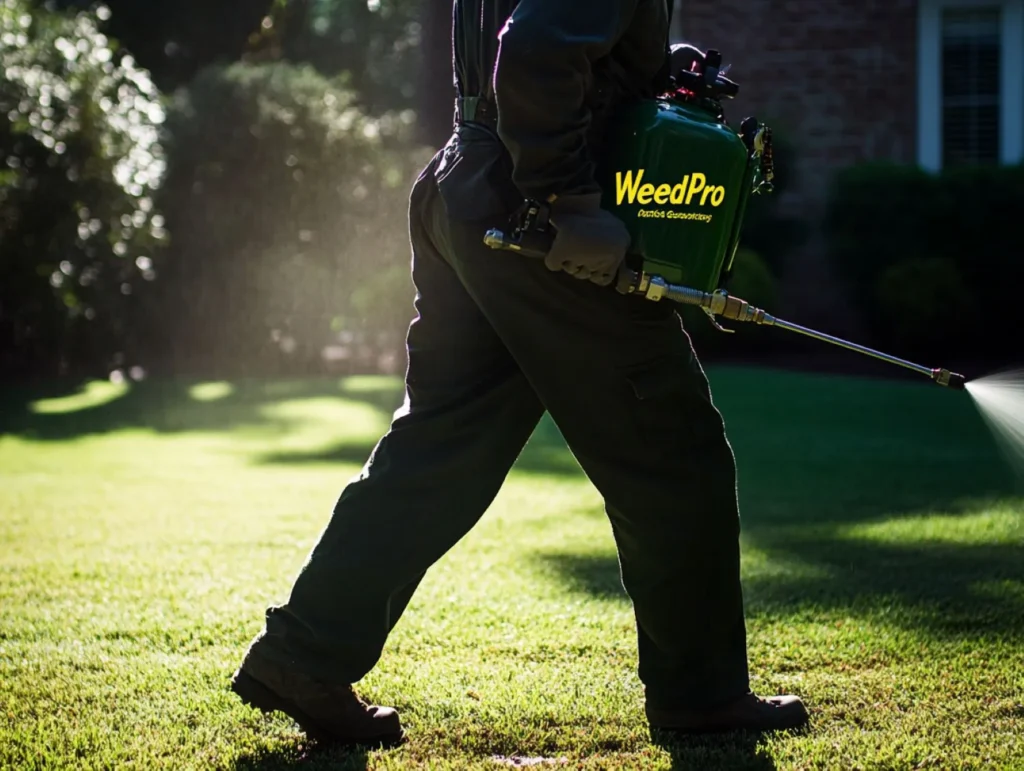
For a beautiful Georgia lawn, you need to knoOutsmart Weeds with a Smarter Lawn Care Strategyw when to take action and which herbicides to use, both to prevent and to treat actively growing weeds that appear. Pre-emergent herbicides establish a barrier to prevent the germination of seeds, while post-emergent products target weeds that have germinated and established their root system. Whether you have new or established grass, it is essential to keep your lawn healthy and looking its best.
When and How to Apply the Pre-Emergent Herbicides for Maximum Effectiveness
Pre-emergent herbicides function by preventing the germination of seeds, forming a barrier on the soil surface of the target area before the seed has sprouted. In the North Georgia environment, the window for application generally occurs between early March and the end of April, when soil temperatures in the target area are consistently around 55°F. For the winter annuals schedule, the second application is from mid-August until mid-September. For application, ensure that you apply the granules evenly and then water the treated areas with approximately half an inch of irrigation to activate the barrier, without harming the surrounding grass.
What are the Advantages and Disadvantages of Using Post-Emergent Herbicides
Post-emergent herbicides are used to kill weeds that are already actively growing in the landscape by targeting a plant’s growth mechanisms or root system.
- The Good: You’ll see quick results as weeds like dandelions, clover, and henbit turn brown and die in a matter of days.
- The Bad: Grass in your lawn can be unintentionally harmed if you don’t apply it accurately, and you must be careful about drift. You may also have to perform several spot treatments to address the issue.
Carefully applying all treatments according to the labeled instructions and making reasonable, spot applications minimizes stress on your turf while eliminating those more stubborn broadleaf and grassy weeds.
Which Herbicide Strategy Delivers the Best Long-Term Lawn Health?
| Treatment Type | When to Use | How Well It Works | Effect on Your Lawn |
|---|---|---|---|
| Pre-Emergent Barrier | Early spring/fall | Excellent for annual weeds | Minimal (it’s preventative) |
| Post-Emergent Spot Treatment | As needed | Great for existing weeds | Moderate (requires precision) |
The ultimate long-term strategy for a healthy lawn, minimal environmental impact, and effective weed control is a smart combination: a well-timed pre-emergent program paired with selective post-emergent spot treatments.
How Do Chemical Weed Control Methods Get Results So Much Faster?
Chemical herbicide active ingredients (like glyphosate or 2,4-D) have a damaging effect by interfering with the growth pathways in the weed, and many times, browning and death can be seen within several days. The benefits of sustained weed suppression throughout the growing season significantly improve the appearance of your lawn in a shorter timeframe. However, this requires careful application, timing, and targeted spot applications designed to avoid harming the desired landscape plants and minimize environmental concerns.
Can a Hybrid offer the Best of both?
Absolutely! A combined use of organic prevention methods and focused applications of pesticides will yield a hybrid technique that offers maximum control while remaining sensitive to environmental impacts. Organic mulches and corn gluten meal will substantially lower the initial weed population, while selective use of post-emergent pesticides can target any weeds that manage to breach. This integrated approach blends the best of both worlds to maintain a healthy and attractive lawn with less chemical usage and benefits to the ecosystem.
Integrated Weed Management (IWM): The Most Sophisticated Approach to Lawn Care in Atlanta
Integrated Weed Management (IWM) is a comprehensive approach to weed control that encompasses a range of practices, including mechanical techniques, biological controls, and chemical applications. It aims to emphasize prevention and reduce the need for ongoing management. IWM has the unique ability to be tailored to specific conditions in your area and the different weed species you are dealing with, leading to a stable lawn that maintains weed control through resilience without relying heavily on any one type of tool.
What is IWM Combining?
IWM is incorporating three ideas into a plan:
- Mechanical Removal: Manual removal by pulling weeds and dethatching regularly to remove any plants emerging.
- Biological Controls: Adding beneficial microbes to compete with weed species from developing.
- Chemicals: Applying herbicides at the right time during the weed life cycle when the weed is most vulnerable.
This multi-tiered strategy produces a denser lawn, interrupts weed life cycles, and strengthens the turf for the future.
What are the Long-term Benefits of IWM for Lawn Health and Sustainability?
Integrated Weed Management can reduce overall use of herbicides by up to 50%, increase the density of your lawn, and support greater microbial diversity in your soils. By targeting weeds at every life stage, including as seeds, seedlings, or mature weeds, the IWM is a self-sustaining approach that maintains lawn vigor while requiring fewer future interventions, providing both environmental benefits for turf and aesthetic benefits of sod.
How do Homeowners and Property Managers successfully implement IWM?
Homeowners and commercial property managers can begin implementing IWM by systematically assessing their lawns for types of weeds, adjusting mowing and watering schedules appropriately, using organic mulch when necessary, and utilizing or purchasing herbicides when needed based on monitoring. A detailed treatment plan and partnership with professionals such as WeedPro can assist with timing every step so that effort is not wasted and ultimately proves effective.
Why use an Experienced Weed Control Service in Atlanta, GA?
Using professionals for weed control allows for expert local knowledge, precision, and tailored application, as well as a strategy developed specifically to save time and lower costs while effectively delivering results.
What are the Cost and Time Benefits of Professional Services vs DIY weed control?
Professional services can reduce homeowner labor by up to 70%. DIY weed programs typically involve numerous trips to the garden center for supplies and costly trial-and-error processes. In contrast, professionally scheduled treatments are timely and cost-effective, yielding reliable results while allowing you to enjoy your lawn rather than work on it.
How does Professional Weed Management provide Long-term Lawn Health and Long-term value?
Professionals manage, adopt, and utilize proactive prevention methods, diligent monitoring, and reactive treatment applications to build thicker turf, eliminate approximately 95% of weeds, and create a healthier ecosystem that promotes soil health. This approach is often hard to replicate on a similar scale with DIY practices while providing visual and real property value benefits for sustainable use.
Outsmart Weeds with a Smarter Lawn Care Strategy
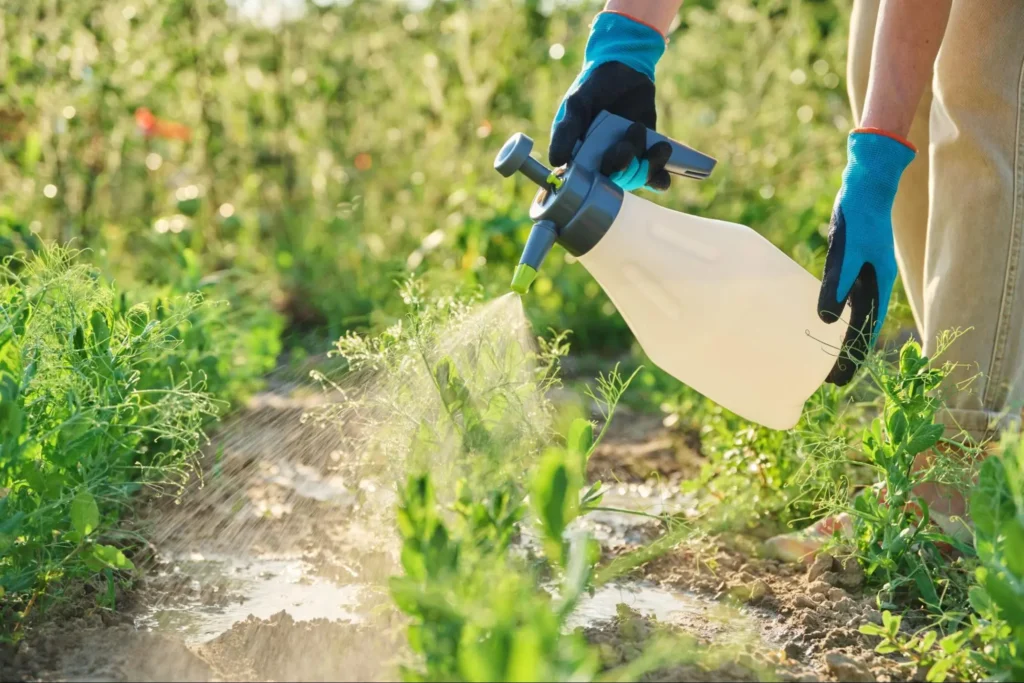
Why wait until weeds show up to start fighting back? At Weed Pro, we believe in proactive prevention, not reactive solutions. Our custom lawn care programs incorporate pre-emergents, turf-thickening strategies, and soil health monitoring, allowing your lawn to naturally resist weed invasions. Say goodbye to endless spot-spraying and patchy turf. With the right game plan, your grass can crowd out weeds before they ever have a chance.
👉 Contact us today to schedule your consultation and build a weed prevention plan tailored to your Atlanta lawn.
❓ FAQ
Is weed prevention more cost-effective than traditional treatments?
Yes, preventing weeds is often more cost-effective in the long run than treating full infestations multiple times a season.
Can you combine weed prevention with fertilization?
Absolutely! Weed Pro’s lawn plans pair pre-emergents with fertilizers to improve soil and turf density simultaneously.
Does prevention help reduce pesticide use?
Yes—when your lawn is healthy and thick, it naturally resists weeds, reducing the need for herbicides overall.
🔗 Up Next:
Keep the momentum going with: “Why Organic Lawn Care Fertilizer Often Leaves Atlanta Yards Patchy and Pale.“

